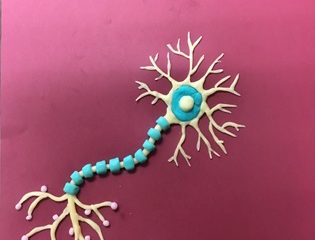Richard Lewis of Pomona College has written a thought-provoking article on the status and future of undergraduate neuroscience education for J.U.N.E. Richard asks whether neuroscience should be a department or a program.
As Richard points out, most of us like to define neuroscience as interdisciplinary. The American Heritage Dictionary defines neuroscience as “any of the sciences, such as neuroanatomy and neurobiology, that deal with the nervous system.” This definition implies that faculty from a number of disciplines might teach neuroscience. On the other hand, Richard notes that the Society for Neuroscience now considers the field to have the status and characteristics of a discipline.
Richard has an enviable problem. My guess is that many of us work in mainstream psychology departments at universities with neither neuroscience programs nor departments. Several years ago, when another colleague and I suggested that we offer a neuroscience concentration within our psychology degree, the department head responded with, “Why?” Consequently, I have found myself in the awkward position of having to advise students to transfer in order to meet their academic needs.
I have sensed a rising panic among “mainstream” psychologists with little or no background in the neurosciences about being left behind and devalued. In one department I know of (not my own), faculty with special interests in neuroscience wanted to branch off into their own sub-department. Much to their astonishment, the rest of the department agreed. After further discussion, the neuroscientists discovered that ALL of the other faculty intended to join the neuroscience group!
While hanging out at the Houghton Mifflin booth at 2005 APS, I had an interesting conversation with a social psychologist, who felt very isolated and threatened by the conference’s emphasis on neuroscience. I have to admit, it’s hard enough for those of us in the business to keep up with the literature. I surely would not want to become a born-again neuroscientist mid-career.
Psychologists have faced these transitions before, and successfully. It’s interesting to note that the majority of biological psychology text authors (myself included) are basically rat-labbing behaviorists by training. Fortunately, my mentors at UCLA made sure that we had strong backgrounds in neuroscience as well. I had the very real pleasure of studying neuroanatomy with Arnold Scheibel in the Medical School. As behaviorism stalled, moving over into the neurosciences was a natural solution.
On the other hand, it is naive to assume that the growing emphasis on neuroscience, and the parallel demands of students as noted in Richard’s essay, will not have an impact on the way we deliver psychology at the university level.


